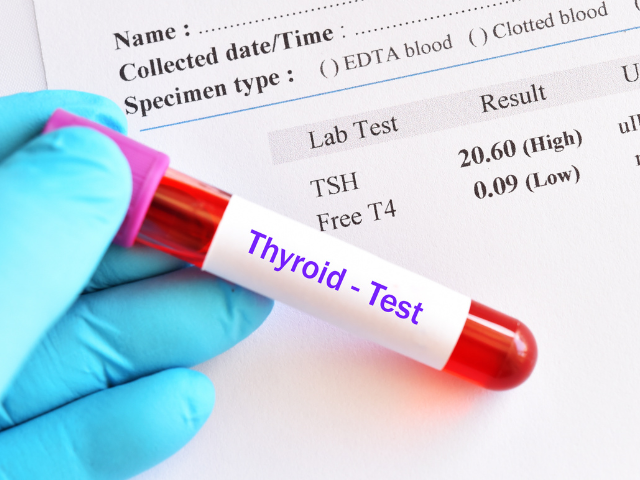Clinical Signs of Hypothyroidism
If hypothyroidism is suspected, nurses should take a complete medical history. The patient may describe a history of constipation, fatigue with little activity, weight gain with decreased food intake, achiness, stiffness, generalized weakness, slowing of intellectual functions, impaired memory, and loss of initiative.
Patients with hypothyroidism often complain about cold intolerance, and if accompanied by goiter, they may also have discomfort with clothes or jewelry that is close fitting around the neck. Hair loss and slow growth of nails and hair could also occur. Women may have heavy, irregular menstrual periods, and men may have impotence. Both may experience decreased libido.
Check if the patient’s diet includes iodine. Foods such as cabbage, spinach, radishes, and antithyroid medications or lithium salts can cause hypothyroidism in a person predisposed to the disease. Moreover, medications such as digoxin and insulin are potentiated by the hypothyroid state.
The most common early symptoms of hypothyroidism are sensitivity to cold, fatigue, and weight gain. People often contact their healthcare provider because of sleep apnea or carpal tunnel syndrome. Patients with hypothyroidism exhibit slowed metabolism and slow tendon-reflex relaxation. They also have a slow speech pattern, flat affect, and difficulty forming replies to interview questions.
With hypothyroidism, the patient may have a dry, thick tongue and hoarseness, dry, flaky skin with a pale or yellowish tint, and edema of the hands and feet. Fingernails and toenails may appear thick, grooved, and brittle. The patient’s face may have a distinctive appearance, with thick features such as a masklike appearance, edema around the eyes, drooping eyelids, and abbreviated eyebrows. The patient’s hair is often thin and dry; patchy hair loss is common.
If the patient has had hypothyroidism for some time, their skin feels calm, rough, and “doughy” on palpation. On examination, the thyroid tissue may not be found unless the patient has a goiter. Common findings of hypothyroidism include weak peripheral pulses, hypotension, and distant heart sounds.
With hypothyroidism, the patient has either decreased or absent bowel sounds and may have abdominal distention. Other findings include hypothermia, shortness of breath, and either depressive or agitated mood states. Rare findings include hypoventilation, pericardial or pleural effusions, deafness, and carpal tunnel syndrome.









